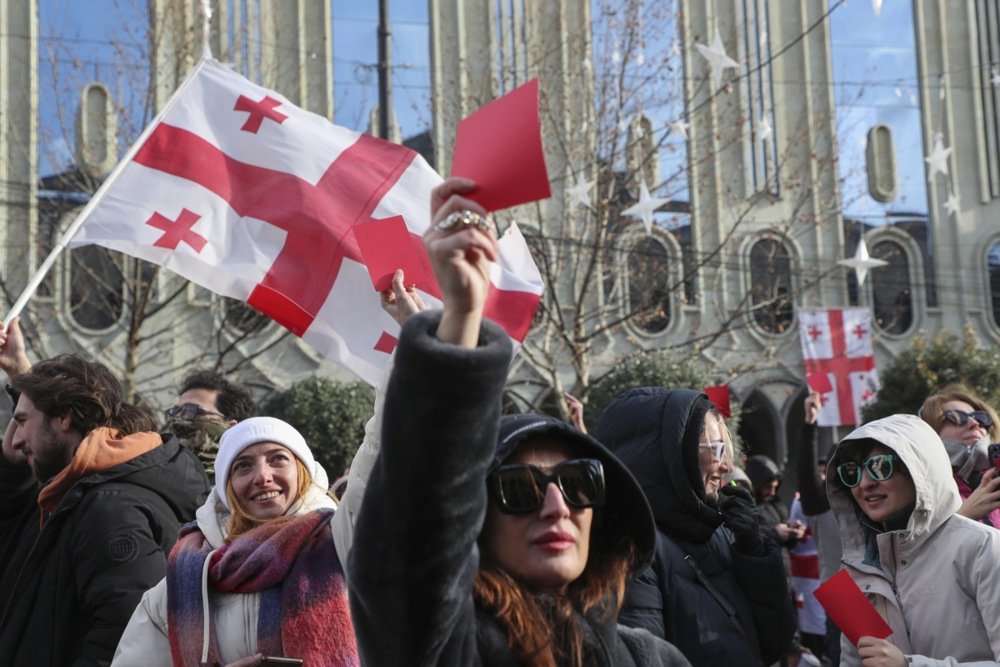
Supporters of the Georgian opposition take part in a protest near the Georgian Parliament building in Tbilisi, Georgia, 29 December 2024. Photo: EPA-EFE/DAVID MDZINARISHVILI
Georgia’s ruling party is to request the country’s Constitutional Court declare opposition parties “unconstitutional”, Russian news agency TASS reported on Thursday, as the increasingly authoritarian party attempted to further cement its grip on power.
Mamuka Mdinaradze, the executive secretary of Georgian Dream, which has been in power since 2012, said that the request to ban the opposition United National Movement (UNM), which was led for years by former Georgian president Mikheil Saakashvili, would “secure the Georgian state and its constitutional order”.
Explaining that the ban would also extend to other “opposition satellite parties”, meaning any parties other than Georgian Dream that received a sufficient proportion of the vote to win seats in parliament in last year’s election, Mdinaradze said that they would be “recognised as anti-Georgian, anti-constitutional and criminal, and their activities will be banned”.
Pending the court’s ruling, opposition parties would be banned from participating in future elections, Mdinaradze added. Legislation to ban any successor parties that might appear after the court ruling is already being drawn up.
On 17 March, Georgia’s former president Mikheil Saakashvili was sentenced to 4.5 years in prison for illegally crossing the border into Georgia in 2021. Saakashvili had already been serving a six-year sentence on charges of illegally pardoning four police officers in 2008 and for ordering the beating of opposition MP Valeri Gelashvili in 2005, leaving him with a combined sentence of 12 years and six months.
In late October, Georgia’s Central Election Commission announced that the pro-Russian Georgian Dream party had won the country’s parliamentary elections despite widespread claims of fraud, voter intimidation and harassment. All four pro-European opposition parties refused to recognise the election results and have not taken up their seats in parliament.
Earlier last year, the party adopted a Russian-style law on “foreign agents”, which led to Brussels suspending the country’s EU accession process. On 28 November, Prime Minister Irakli Kobakhidze announced that Georgia had suspended all negotiations with the European Union on joining the bloc until 2028, since when a new wave of anti-government protests has gripped the country.
